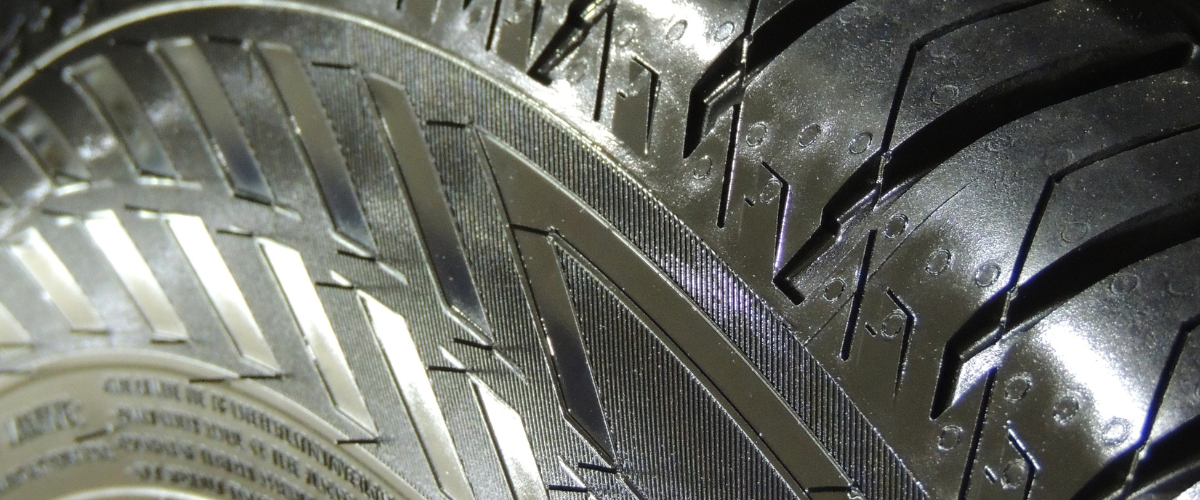Why UTQG Ratings Matter and Where to Find Them
Auto Shops Located in: Chapel Hill, Durham, Taleigh, Apex, and Cary North Carolina

Uniform Tire Quality Grade (UTQG) Standards tell you how well your tires perform in various situations, like wet conditions or high speeds. While UTQG rating won’t always tell you all the information you may want to know about a tire, it can give you some insights into a tire’s performance in different conditions. When you understand what UTQG ratings are and why they matter, you can ensure your vehicle always has high-quality tires.
What Are UTQG Ratings?
UTQG ratings refer to letter and number grades that tell you a tire’s treadwear, temperature resistance, and traction in wet conditions. The vehicle’s treadwear will have a number grade, while traction and temperature have letter grades. In the United States, UTQG ratings are required for passenger tires but not deep-tread light truck tires, run-flats, and winter tires.
Where Do I Find UTQG Ratings?
If you’re interested in reviewing the UTQG ratings on your vehicle’s tires or want to check the UTQG ratings for new tires, they should be located on a tire’s sidewall. On the sidewall, you should see the letter and number grades for your tires.
Why Are UTQG Ratings Important?
Since UTQG ratings tell you about your tires’ traction, treadwear, and heat resistance, they can give you crucial information about how well your tires will perform and how long they’ll last. Learn more about the top three reasons UTQG ratings are important below:
1. UTQG Ratings Tell You How Well Your Tires Perform in Wet Conditions
A tire’s UTQG traction grade refers to how well the tire retains its grip on a wet surface. As a result, it shows how effective a tire is at stopping in wet conditions. The traction grades come in four ratings: AA, A, B, and C.
As you might expect, AA means it has the highest level of grip on wet surfaces, while C means the tire has the least grip. The vast majority of tires have an A rating, and very few have a C rating, as those with a C rating are typically used for racing rather than everyday use. Generally, A-rated tires tend to be the right option for most drivers, but if you need ultra-high-performance tires, those with a AA grade are the best choice.
You’ll also want to note that traction ratings don’t evaluate the tire’s grip in dry conditions. It also doesn’t evaluate a tire’s hydroplaning resistance or how well it corners. Essentially, the tire’s traction grade will only tell you how well a tire stops in wet conditions, with A being effective enough for most drivers.
2. UTQG Ratings Let You Know How Fast Your Tire Will Last Compared to Other Tires
Over time, a tire’s tread (the rubber part of your tire that touches the road) will wear down, making your tires more vulnerable to punctures. If you let your tire’s tread wear down too much, your tires won’t have enough traction, and you could lose control of your vehicle. You can often get a general sense of how long your tires will take to wear down to unsafe levels by checking their UTQG rating.
While the UTQG ratings that relate to temperature and traction have a letter grade, the treadwear rating has a number grade. While some believe the treadwear rating refers to a mileage projection, it actually refers to how well a tire compares to a reference tire. If the tire is expected to last as long as the reference tire, it will have a UTQG treadwear grade of 100. When the tire is expected to last twice as long, it will receive a grade of 200.
Most tires are in the 200 to 400 treadwear range, but you can find some above 600, meaning they’re expected to last at least six times longer than the reference tire. Since treadwear ratings can be manipulated by manufacturers, they’re best used to compare treadwear for tires from the same manufacturer instead of competing brands.
3. UTQG Ratings Give You Information About Your Tire’s Heat Resistance
Whether you’re cruising down the highway or driving around your neighborhood, your tires will generate heat. A tire’s UQTG temperature grade refers to how much heat the tire will dissipate, with the result letting you know how well your tire resists heat at high speeds. The three temperature grades are A, B, and C, with all passenger tires having to earn at least a C grade. Grades lower than C will put your tires at risk of overheating while you drive at higher speeds. Review the following descriptions of each grade below:
- A grade: Can effectively dissipate heat at speeds over 115 mph
- B grade: Can effectively dissipate heat between 100 to 115 mph
- C grade: Can effectively dissipate heat between 85 to 100
As you can see, an A grade means your car can handle the highest levels of heat, while C can handle the lowest acceptable levels. Most people won’t ever drive their car faster than 85 to 100 mph, so most drivers can get away with tires featuring a C temperature rating. However, you may want to go higher if you plan to drive your vehicle faster or simply want greater heat resistance.
Schedule Tire Replacement Services at Your Local Chapel Hill Tire
If you’re looking for new tires near you in Durham, Chapel Hill, Raleigh, or the surrounding areas, turn to Chapel Hill Tire. Whenever you need to change your tires, our team can help you understand the UTQG ratings for a new set of tires and give you advice on what ratings you should be looking for. With our 11 Triangle-area locations and many services, we’re confident we can get your car back on the road quickly and safely.
Review our selection of tires today. If you need tire replacement services or other types of vehicle maintenance, please schedule an appointment!















